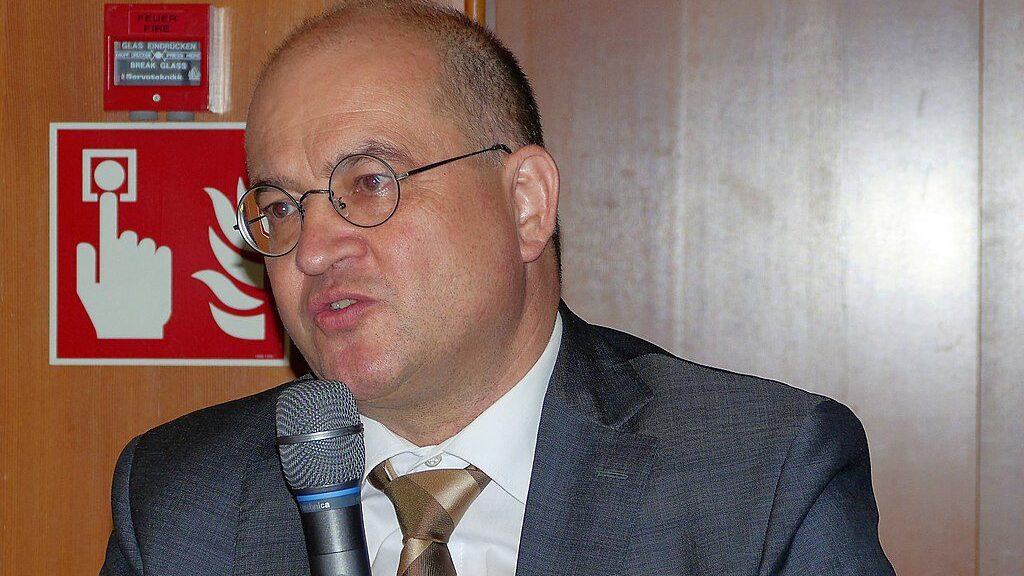
Arnold Vaatz speaking in Dresden in 2016.
Photo: Dr. Bernd Gross / Wikimedia Commons
Former deputy chairman of the CDU/CSU parliamentary faction Arnold Vaatz in a recent interview defended the Alternative für Deutschland (AfD) and leveled scathing criticism against Angela Merkel, his party, as well as the country’s political establishment, arguing that the country is effectively a dictatorship.
In comments delivered in an interview with the Swiss-German daily Neue Zürcher Zeitung, Vaatz, a former civil rights campaigner in the German Democratic Republic (GDR), referred to present-day Germany as a “dictatorship of language rules, the use or non-use of which determines a person’s career prospect.”
Echoing similar criticisms directed at the CDU/CSU by his fellow party member Hans-George Maassen, who formerly served as the President of the Federal Office for the Protection of the Constitution (BfV), Vaatz argued that the Union parties have “developed into followers who now ape what the Greens, the left-wing parties, and the media they control think up in terms of such rules.”
Maassen, in an interview with The European Conservative published days ago, spoke similarly, telling journalist Zoltán Kottász: “The leadership of the CDU is dominated by left-wingers, you can call them Merkelists.”
Merkel, whom Maassen described as a “total left-winger,” successfully “transformed the classic-conservative CDU of Konrad Adenauer and Helmut Kohl into a socialist party, and turned the party establishment into a real left-wing establishment.”
Vaatz told the Swiss-German newspaper that as soon as one fails to adhere to the left-wing establishment’s prescribed viewpoint or political position on issues like immigration, nuclear power, corona vaccination, or the so-called ‘green agenda,’ they are immediately labeled “right-wing, and one will be removed from the media relevance zone and silenced.”
When discussing Merkel, Vaatz’s criticism of the former chancellor was even more biting than Maassen’s. Angela Merkel was a “catastrophe for the whole of Germany,” Vaatz said, adding that she had “robbed the country of its future.” He further admitted that he, as a key member of the ruling coalition at the time, “personally played a role” in allowing the catastrophe to take place.
“She pulled the plug on Germany by ruining its energy base,” Vaatz, who vacated his seat in the Bundestag in 2021, went on. “She destroyed the Bundeswehr. She wiped the euro’s stability criteria off the table. It has not stopped the deficit development in our solidarity system. It has allowed the infrastructure to crumble.”
With regard to the Alternative für Deutschland (AfD), Vaatz takes a different position and has a much more favorable view of the right-wing, anti-globalist party than fellow Union outsider Hans-George Maassen does.
Vaatz contended that the “AfD is closer to the truth than all other parties,” and added that only a minority of the party’s voters in the former East Germany would like to see the GDR resurrected.
“The majority [of AfD voters] are desperately [concerned] about the path taken by the Union parties under Merkel,” Vaatz said, adding that the AfD, “by avoiding opportunism, has earned their respect.” In some ways, he added, the AfD has “taken over the position of the CDU from the 1990s and therefore is closer to the truth than any other party.”
Furthermore, in order to be successful once more, Vaatz argued that the CDU/CSU would need to readopt the positions it held up until 1998, but added that it fails to do so since “today some of them are AfD positions” and they fear backlash from the left-wing establishment and its state-backed media.
To conclude, Vaatz told the newspaper that as far as Germany is concerned, he can only say one thing confidently: “Many have realized that this country is no longer governed rationally. They have the feeling that Germany is on a path that the GDR was on in the 1980s and will press for corrections.”
